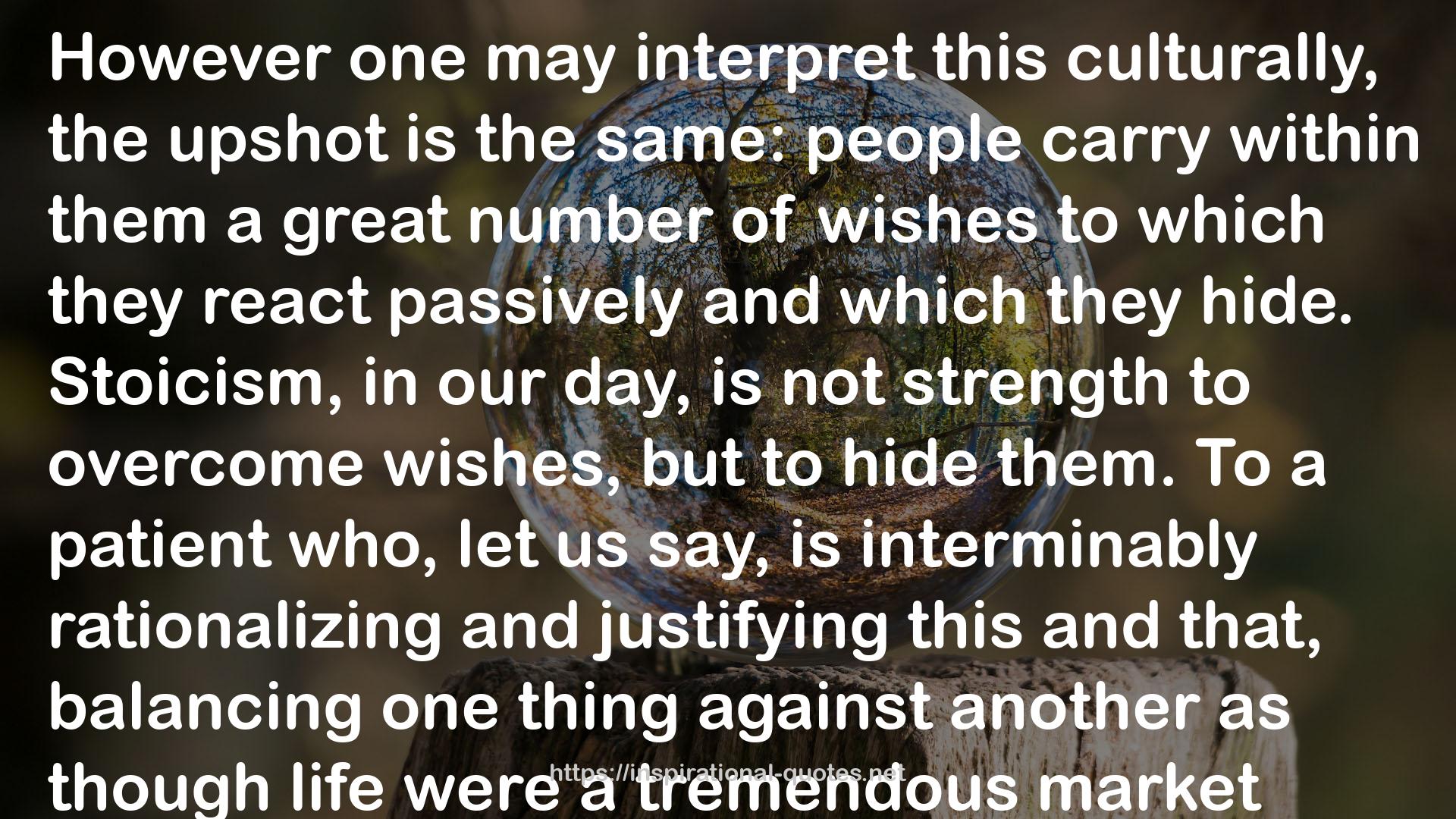" However one may interpret this culturally, the upshot is the same: people carry within them a great number of wishes to which they react passively and which they hide. Stoicism, in our day, is not strength to overcome wishes, but to hide them. To a patient who, let us say, is interminably rationalizing and justifying this and that, balancing one thing against another as though life were a tremendous market place where all the business is done on paper and tickertape and there are never any goods, I sometimes have the inclination in psychotherapy to shout out, “Don't you ever want anything?” But I don't cry out, for it is not difficult to see that on some level the patient does want a good deal; the trouble is he has formulated and reformulated it, until it is the “rattling of dry bones,” as Eliot puts it. Tendencies have become endemic in our culture for our denial of wishes to be rationalized and accepted with the belief that this denial of the wish will result in its being fulfilled. And whether the reader would disagree with me on this or that detail, our psychological problem is the same: it is necessary for us to help the patient achieve some emotional viability and honesty by bringing out his wishes and his capacity to wish. This is not the end of therapy but it is an essential starting point. "
― Rollo May , Love and Will
